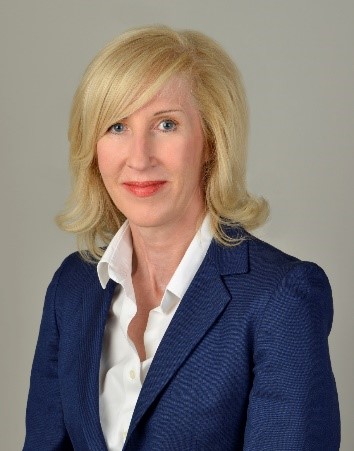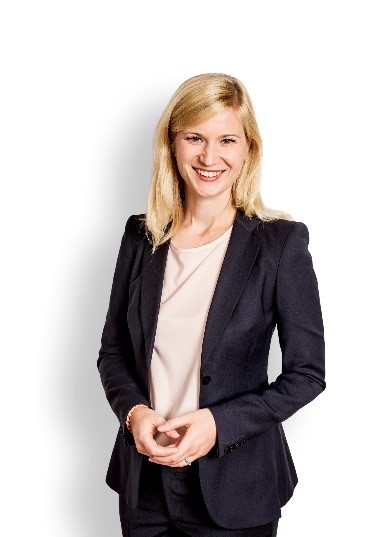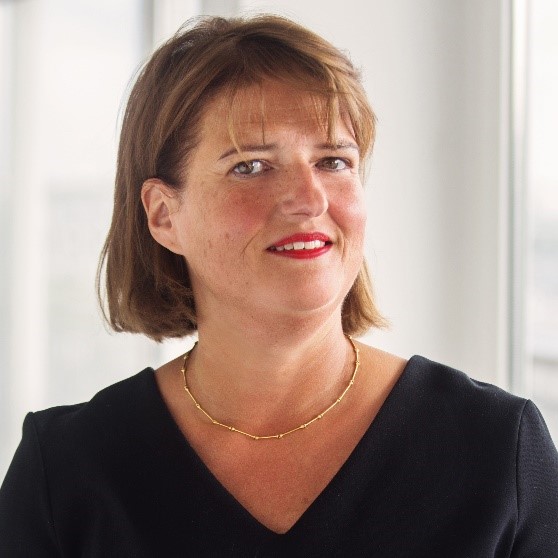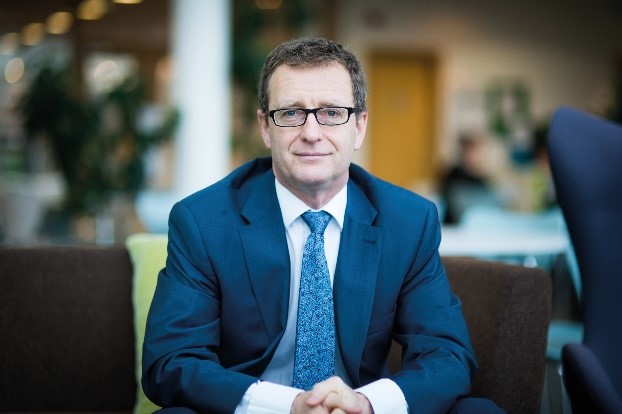Diversity series: What are you doing to promote diversity? - Litigation Committee newsletter article, April 2020
Monday 6 April 2020
Back to Litigation Committee publications
Jane Colston
Brown Rudnick, London
jcolston@brownrudnick.com

I have recently been appointed Brown Rudnick's equity, inclusion and diversity (EID) partner along with New York-based partner, Chelsea Mullarney. We take over this role from Boston-based partner Sunni Beville as she has now been promoted to Managing Director of the Dispute Resolution & Restructuring Department.
As part to our commitment to breaking down barriers, we will participate directly in conversations regarding recruitment, integration, professional development, elevation and compensation.
In this context, since December 2016, as part of our commitment to diversity and inclusion, we have been hosting a Women in Business series in our London office. By having inspirational women, leading in their various fields, come and speak about their work and experiences, we hope to create a dynamic forum where business relationships can be created and opportunities realised.
Brown Rudnick’s London offices extend across a townhouse on Clifford Street, in Mayfair, built in 1720 for a wealthy landowner. The building had been used as tailors' premises for a large portion of its life. I was therefore thrilled to kick off the series with Kathryn Sargent who, in 2016, shattered one of London's most enduring glass ceilings when she became the first woman to have her name ‘above the door’ in the world famous Savile Row’s 213-year history.
Our most recent speaker, Dame Jane Dacre, President of the Royal College of Physicians, spoke about not only succeeding in what can be described as a male-dominated field, but also generally about the kind of traits one must possess to be a good leader, namely the five ‘C’s: capability, confidence, communication, creativity, and courage.
To date, the Women in Business series has had the honour of welcoming a number of inspirational speakers: Amber Rudd (while she was UK Home Secretary), Cressida Dick (Metropolitan Police Commissioner), Cath Kidston MBE (English fashion designer), Inga Beale (CEO, Lloyds of London) and, on 18 April 2019, the 100th anniversary of Women in Law in England and Wales, Christina Blacklaws, the President of the Law Society.
On 24 March 2020, we will have the honour of welcoming Mrs Justice Sue Carr to speak. She will be sworn in as Lady Justice of Appeal in April 2020.
---
Ilona Karppinen
Castrén & Snellman, Helsinki
ilona.karppinen@castren.fi

Diversity in law firms has received increasing attention within the Finnish legal profession, most recently as a result of a survey published by the Finnish Bar Association in January 2020.[1]
The survey was based on a questionnaire sent to all Bar members and associate lawyers within their firms. Its aim was to evaluate the position of women and parents working in law firms. The results were keenly discussed at a half-day seminar at the Finnish Bar Association’s annual conference, and insights into this hot topic were actively shared on social media and even the national news.
Overall, the results of the survey seemed promising. About 60 per cent of all new members accepted to the Finnish Bar Association are women, and equality was generally perceived to be at a rather good level within the profession.
Nonetheless, as in other countries, senior positions within Finnish law firms continue to be dominated by men. Moreover, one-in-four of the female lawyers who answered the questionnaire was actively considering a change of profession. Although the overall burden of work was the leading cause for considering career change for both men and women alike, women’s deliberations were more often also influenced by difficulties in work-life balance, perceived lack of equality, and firm values.
A quarter of all respondents reported that they had experienced or witnessed undue favouritism at their workplace, and 14.1 per cent had experienced or witnessed discrimination based on family or pregnancy. The respondents’ greatest concern was that men and women were not treated equally in decisions relating to career advancement or partner elections. The results were estimated to be at least partially related to the fact that women took much longer parental leaves than men.
So what am I – as a member of the Bar, a woman and a parent of two young children – doing about this?
I have been proud to contribute to our firm’s Bridge initiative, which is designed particularly to support those members of staff who are parents with young children. The aim of the initiative is to encourage these talented people to continue working for the firm by helping them in the transition where they return to work from parental leave, and in the early years of parenthood, when balancing a career and family life can be most intense. The Bridge project group wanted to ensure that there is a culture of respect within the firm towards parents, that work practices are designed to enable work-life balance (timing of internal meetings within normal office hours, flexible possibilities for remote work, readily available childcare for a sick child, etc), and that mentorship programmes are available to encourage parents of young children to advance in their careers.
I have also tried to promote female lawyers across firm borders through various professional networks. One such informal network is based on the idea that the selection of female arbitrators could be increased if counsel had better knowledge of the pool of potential female candidates. In addition to this underlying idea of promoting diversity in arbitration, the network has brought me true inspiration through the stories of relentless women that have reached great achievements through hard work.
Most importantly, however, I have strived to make a difference through my everyday actions. Although on some days the struggle between work deadlines and day-care hours is real, overall, I feel privileged to be able to lead a meaningful career together with a rewarding family life. My hope is that by setting a positive example I may also encourage other women, parents and lawyers struggling with work-life balance to believe in their abilities to advance in their careers while pursuing their other passions in life.
---
Tom Price
Gowling WLG, London
tom.price@gowlingwlg.com

A core value at Gowling WLG is that ‘we all bring something different’ and we invest time and resources to bring this value to life, ensuring that we create an inclusive environment which enables everyone to thrive.
This approach is led from the top: our chairman is the firm’s diversity and inclusion champion and each of our board members sponsors a different employee resource group. Each of them has inclusion-related objectives and has received reverse mentoring from a colleague from the demographic they are championing, which has given them invaluable insights into others’ ‘real life’ experiences.
Much of the work we do to engage with our colleagues comes through our employee networks. We currently have five networks: OpenHouse (LGBT+); Thrive (Gender); EmbRACE (ethnicity); Enable (disability and mental health and wellbeing) and Family Matters (parents and carers).
Our networks provide ‘lunch and learns’, run events for colleagues and raise awareness through powerful story-telling videos. Support takes the form of mental health champions and domestic violence champions, who provide listening and signposting services, which are well used, as well as a confidential employee assistance programme.
Wellbeing is a huge theme running through our work and we have lots of initiatives to boost colleagues' wellbeing – everything from jigsaws and colouring books in break out areas (hugely popular) to subsidised yoga and massage and visits from our 'doggy destress' canine friends (the most popular of all!).
Alongside all of our work to engage with and support our people, we recognise that we need to build inclusion into our processes if we are to achieve sustainable change. Recent examples of process changes include:
-
An 18-month Inclusive Leadership Programme for our partners and senior leaders offering in-depth behavioural learning to positively impact both personal and group decision making in key people processes such as recruitment and performance review.
-
A sponsorship programme for high potential female and BAME colleagues.
-
We have revolutionised our recruitment processes to attract a more diverse talent pool actively and accurately, designing out bias. Combining Artificial Intelligence and innovative ‘gamification’ talent-selecting technologies, we can unearth big data-supported user personality profiles ensuring that selection is based on suitability and fit, eliminating adverse impact or bias.
-
Maternity/paternity coaching is available to all employees either one-to-one or within a group setting. We are piloting an emergency care provision for parents to source qualified childcare professionals at short notice paid for by the firm and introducing parenting cafes.
-
A Family Leave Bridging policy has been introduced, recognising that in the lead up to and on returning to the workplace from maternity/adoption/shared parental leave, colleagues benefit from reduced time recording targets.
-
We are now a number of years into our agile working practices – recognising that people can work in different patterns and places whilst still meeting the needs of their teams and clients. This has been hugely popular with benefits not just for those with caring responsibilities but for everyone from a wellbeing perspective.
We are very much on a journey: we have done a lot but there is still plenty to do.
---
Nicola Kömpf
Alerion, Paris
nkompfale@alerionavocats.com

As a partner of Alerion, head of German Desk and recently designated as board member in charge of communication and HR, I am currently contributing to support in our office young lawyers and parents (both women and men) to manage their work-life balance to achieve their personal goals and to reach a higher degree of diversity.
Alerion is a mid-sized French independent full-service law firm based in Paris, which focuses on international business law. Our multidisciplinary team includes over 70 lawyers who are constantly combining their talents to deliver high value added and practical solutions for our clients.
While the fight against discrimination was already enacted in the US by the 1964 Civil Rights Act, pro-diversity activities only appeared in France in the early ’90s. Furthermore, people increasingly wish to consume more ethically and responsibly. The same applies to services. A welcoming, open-minded environment is, from my point of view, also a key issue in recruiting future talent.
Diversity emerges as an important management tool in law firms and we have attempted to harness this evolution. Over the last decade we have implemented different measures built around five basic pillars:
-
recruitment of lawyers with different backgrounds, with typical and atypical CVs, focusing on various experiences and strong language skills;
-
creating of an environment conductive to wellbeing and allowing personal expression;
-
career guidance;
-
collective action to strengthen the spirit of belonging to an attractive law firm;
-
favouring cross-disciplinary teamwork.
These efforts have been well awarded, as we have reached a good gender balance of 47:53 female/male lawyers. Women account for 27 per cent of our partners, a high score compared to equivalent international law firms in France. And a decent percentage have become partners through internal promotion, ie, seven of the 18 partners are former associates who climbed the corporate ladder including two women lawyers.
Three lawyers have also been admitted to a foreign bar and a great number have foreign diplomas or additional education in addition to their Paris Bar admission. I am myself, a member of both the Paris and Berlin Bar, the mother of three children (18, 16 and 11 years old), and a partner since 2000, a good example of what is possible.
Courage and determination are essential as well, in part, chance meeting the right people at the right time to support the project. Consequently, we have the benefit to develop resourceful solutions adapted to our clients’ needs with our flexible, highly qualified, open-minded and diversified team.
---
Tim Richards
Michelmores, London
tim.richards@michelmores.com

‘Equality is being invited into the room. Diversity is getting a seat at the table. Inclusion is sharing your ideas and being heard.’ – Sweeney and Bothwick
As a firm, we are committed to creating an inclusive working environment where everyone has the opportunity to reach their potential, while being themselves at work.
We believe that creating a culture of inclusivity is important in helping us deliver on our growth ambitions, while ensuring we attract and retain talent from the widest possible talent pool.
We have an Inclusivity Working Party, headed up by Carol McCormack (partner). This group consists of a cross-section of colleagues from across our firm. The group is initially focusing on four key areas which are gender inclusivity, social mobility, raising awareness of unconscious bias (or unintentional bias), underpinned by looking at how we create a more inclusive environment for all.
During the last two years, the most energy has been directed towards looking at how we can better support the progression of female talent across the firm. With this in mind, we launched Women@Michelmores (W@M) in 2017. Our stated aim is to have at least 30 per cent (ideally higher!) female partners by 2022.
The changes introduced have included:
-
promoting agile working, including the ability for all lawyers and senior support staff to work up to one day a week from home every week – this has been hugely popular. We also actively consider all new roles on an agile basis, using flexible recruitment platforms such as Daisy Chain to promote this externally;
-
providing unconscious bias training to our senior leadership team, and those who have a key role in decisions affecting our people around selection, promotion and pay;
-
making simple process changes to help mitigate against unintentional gender bias as part of our decision making process around areas such as selection, promotion and pay;
-
promoting our parental leave offering and the uptake of Shared Parental Leave (SPL). We believe that if men and women share family responsibilities, it will encourage gender balance in the workplace;
-
creating ‘lean-in circles’ for female colleagues, providing opportunity to share insights;
-
being transparent about the support we provide for maternity, parental and adoption leave and pay on our recruitment website so that potential candidates have access to this information without having to ask at interview.
Other ideas we are currently actively considering include:
-
exploring how we can get men and women working together to change workplace culture to be even more gender inclusive;
-
introducing Inclusion Advocates who are equipped to call out every day gender bias;
-
providing one-to-one coaching for anyone who has an extended period of leave for family responsibilities (maternity leave, parental leave, adoption leave or elder care).
We believe the source of excellence lies in the differences between us as individuals. We encourage people to play to their individual strengths, within a collaborative working environment, which is how we aim to build strong and diverse teams. We realise that while we have made some great progress, there is still much to do!
---
Back to Litigation Committee publications